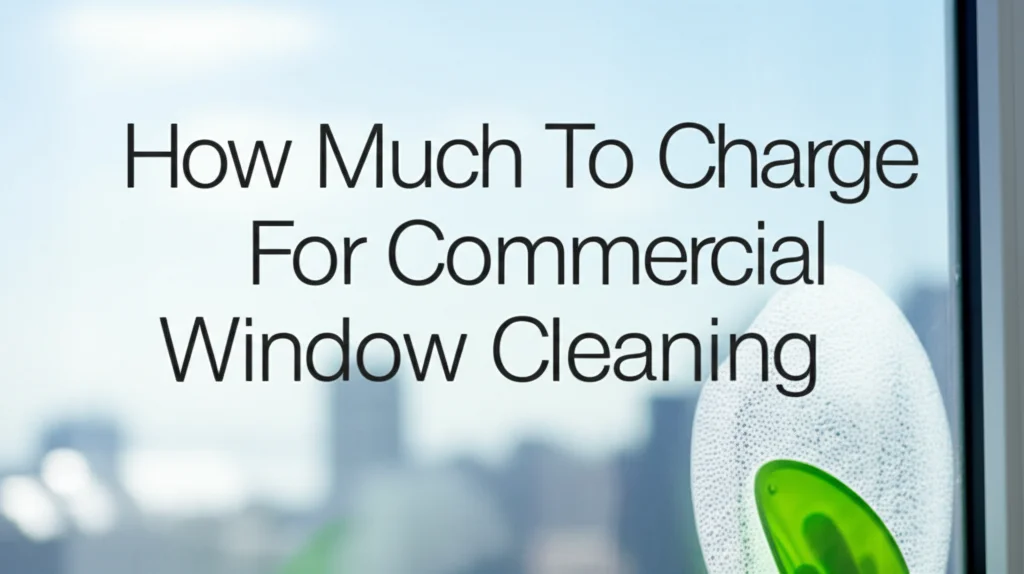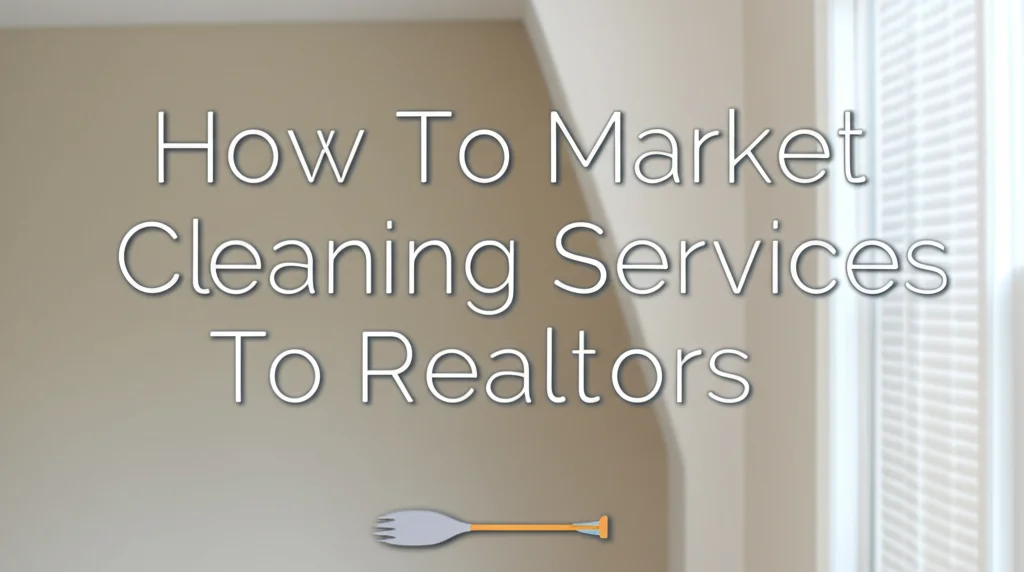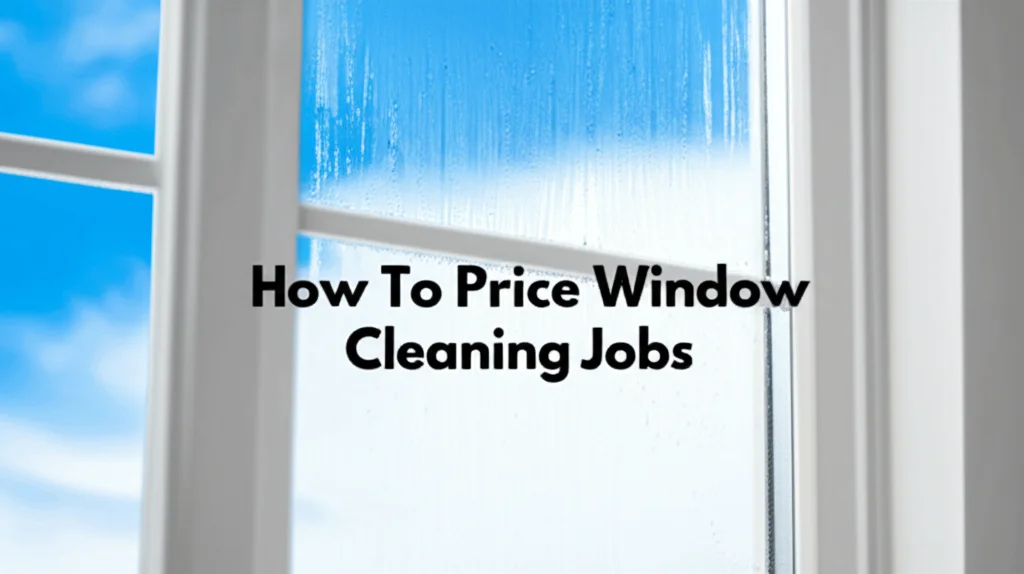· Cleaning Business · 6 min read
How To Bid Commercial Window Cleaning

How To Bid Commercial Window Cleaning: A Complete Guide
Are you a window cleaning professional looking to expand into the lucrative world of commercial contracts? Landing those bigger jobs requires more than just excellent cleaning skills; it demands a strategic approach to bidding. Successfully bidding on commercial window cleaning projects means understanding costs, accurately assessing the job scope, and presenting a competitive, yet profitable, proposal. This article will walk you through everything you need to know to confidently bid on commercial window cleaning jobs and win more business. We’ll cover everything from initial assessment to final proposal delivery.
What does it take to bid successfully on commercial window cleaning jobs?
To successfully bid on commercial window cleaning jobs, you need to accurately assess the job’s scope, calculate your costs (labor, materials, travel), factor in profit margins, and present a clear, professional proposal.
Understanding the Commercial Window Cleaning Market
The commercial window cleaning market differs significantly from residential work. Commercial properties often have larger, more complex window systems, requiring specialized equipment and techniques. Buildings can range from small storefronts to multi-story office buildings, each presenting unique challenges. Understanding these differences is crucial for accurate bidding. You’ll encounter various window types – double-hung, casement, storefront, curtain wall – and access methods, including ladders, lifts, and rope access.
- Building Height & Access: Higher buildings require specialized equipment and safety protocols, increasing costs.
- Window Type & Condition: Dirty or hard-to-reach windows will take longer to clean, impacting your labor estimate.
- Frequency of Service: Recurring contracts often allow for lower pricing due to consistent work.
- Client Expectations: Some clients prioritize speed, while others demand meticulous detail.
Gathering Information: The Initial Site Survey
Before you even think about a price, a thorough site survey is essential. This isn’t just a quick glance; it’s a detailed assessment of the entire job. Walk the property with the potential client (or their representative) and ask questions. Document everything – window count, size, type, accessibility, and any potential obstacles. A detailed survey prevents surprises and ensures your bid is accurate. Don’t underestimate the importance of this step; it’s the foundation of a profitable bid.
- Window Count: Accurately count all windows to be cleaned, inside and out.
- Window Size: Measure representative windows to estimate total square footage.
- Accessibility: Identify any obstacles like landscaping, security systems, or tight spaces.
- Window Condition: Note any heavily soiled areas, paint, or damage.
- Special Requests: Ask about specific cleaning requirements or concerns.
Calculating Your Costs: A Breakdown
Accurate cost calculation is the heart of profitable bidding. You need to account for all expenses, not just labor and supplies. Underestimating costs is a common mistake that can quickly erode your profits. Break down your costs into these key categories: labor, materials, transportation, insurance, and overhead. Be realistic and don’t be afraid to add a buffer for unexpected issues.
- Labor Costs: Calculate the estimated time to complete the job and multiply by your hourly rate (including payroll taxes and benefits).
- Material Costs: Include the cost of window cleaning solutions, squeegees, cloths, buckets, and any specialized equipment.
- Transportation Costs: Factor in fuel, mileage, and vehicle maintenance.
- Insurance Costs: Ensure your liability insurance covers commercial window cleaning.
- Overhead Costs: Allocate a percentage for administrative expenses, marketing, and other business overhead. Consider using accounting software to track these costs accurately.
Pricing Strategies: Finding the Sweet Spot
Once you know your costs, you can determine your pricing strategy. There are several common approaches: cost-plus pricing, competitive pricing, and value-based pricing. Cost-plus pricing involves adding a desired profit margin to your total costs. Competitive pricing involves researching what other window cleaning companies are charging in your area. Value-based pricing focuses on the benefits you provide to the client. Often, a combination of these strategies works best.
- Cost-Plus Pricing: Simple and ensures profitability, but may not be competitive.
- Competitive Pricing: Requires market research but can help you win bids.
- Value-Based Pricing: Justifies higher prices by highlighting your expertise and quality.
- Per-Window Pricing: Common for smaller jobs, but can be inaccurate for complex projects.
- Square Footage Pricing: Suitable for larger buildings with consistent window sizes.
Creating a Professional Proposal
Your proposal is your chance to make a strong impression. It should be clear, concise, and professional. Include a detailed scope of work, your pricing, payment terms, and insurance information. A well-written proposal demonstrates your professionalism and builds trust with the client. Avoid jargon and use plain language. Proofread carefully for errors. Consider using proposal software to create a polished and consistent look. You can also include testimonials from satisfied clients.
- Company Information: Include your company name, logo, and contact information.
- Scope of Work: Clearly define the services you will provide.
- Pricing: Present your pricing in a clear and easy-to-understand format.
- Payment Terms: Specify your payment schedule and accepted methods.
- Insurance Information: Provide proof of liability insurance.
- Timeline: Outline the project schedule.
Following Up and Negotiation
Don’t just submit your proposal and wait. Follow up with the client to answer any questions and address any concerns. Be prepared to negotiate your price, but don’t compromise your profitability. Understand your bottom line and be willing to walk away if the client isn’t willing to pay a fair price. A confident and professional approach to negotiation can often lead to a successful outcome. Remember, building a long-term relationship with the client is often more valuable than winning a single bid. If you don’t win the bid, ask for feedback to improve your future proposals.
FAQ: Common Questions About Commercial Window Cleaning Bids
Q: How long should a commercial window cleaning bid be valid for? A: Typically, a bid should be valid for 30-60 days. This allows the client time to review and approve the proposal while protecting you from fluctuating costs.
Q: What safety precautions should I mention in my bid? A: Highlight your commitment to safety, including the use of appropriate equipment, training, and adherence to safety regulations.
Q: Should I include a contract with my bid? A: Yes, a detailed contract outlining the scope of work, payment terms, and other important details is essential.
Q: How do I handle bids for buildings with difficult access? A: Clearly outline the access methods you will use (lifts, rope access, etc.) and any associated costs.
Q: What if the client asks for a discount? A: Be prepared to justify your pricing and offer alternative solutions, such as reducing the scope of work or adjusting the frequency of service.
Q: How often should commercial windows be cleaned? A: The frequency depends on the building’s location and environment, but generally, quarterly or semi-annual cleaning is recommended.
Conclusion: Winning Commercial Window Cleaning Contracts
Bidding on commercial window cleaning jobs requires a strategic approach, meticulous planning, and a commitment to professionalism. By understanding the market, accurately assessing costs, and presenting a compelling proposal, you can significantly increase your chances of winning lucrative contracts. Remember to prioritize safety, build strong client relationships, and continuously refine your bidding process. Don’t be afraid to invest time in creating detailed, accurate bids – it’s the key to long-term success in the commercial window cleaning industry. Mastering the art of the bid will not only secure more work but also establish you as a trusted and reliable provider. Now, go out there and win those contracts!
https://www.beacleaner.com/how-to-clean-outside-windows-upstairs/ https://www.beacleaner.com/how-to-clean-luxury-vinyl-plank-flooring/ https://www.beacleaner.com/how-to-clean-hardwood-floors-with-vinegar/ https://www.beacleaner.com/how-to-clean-bathroom-floor-without-mop/




